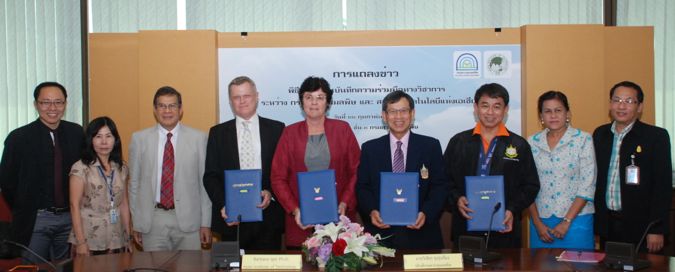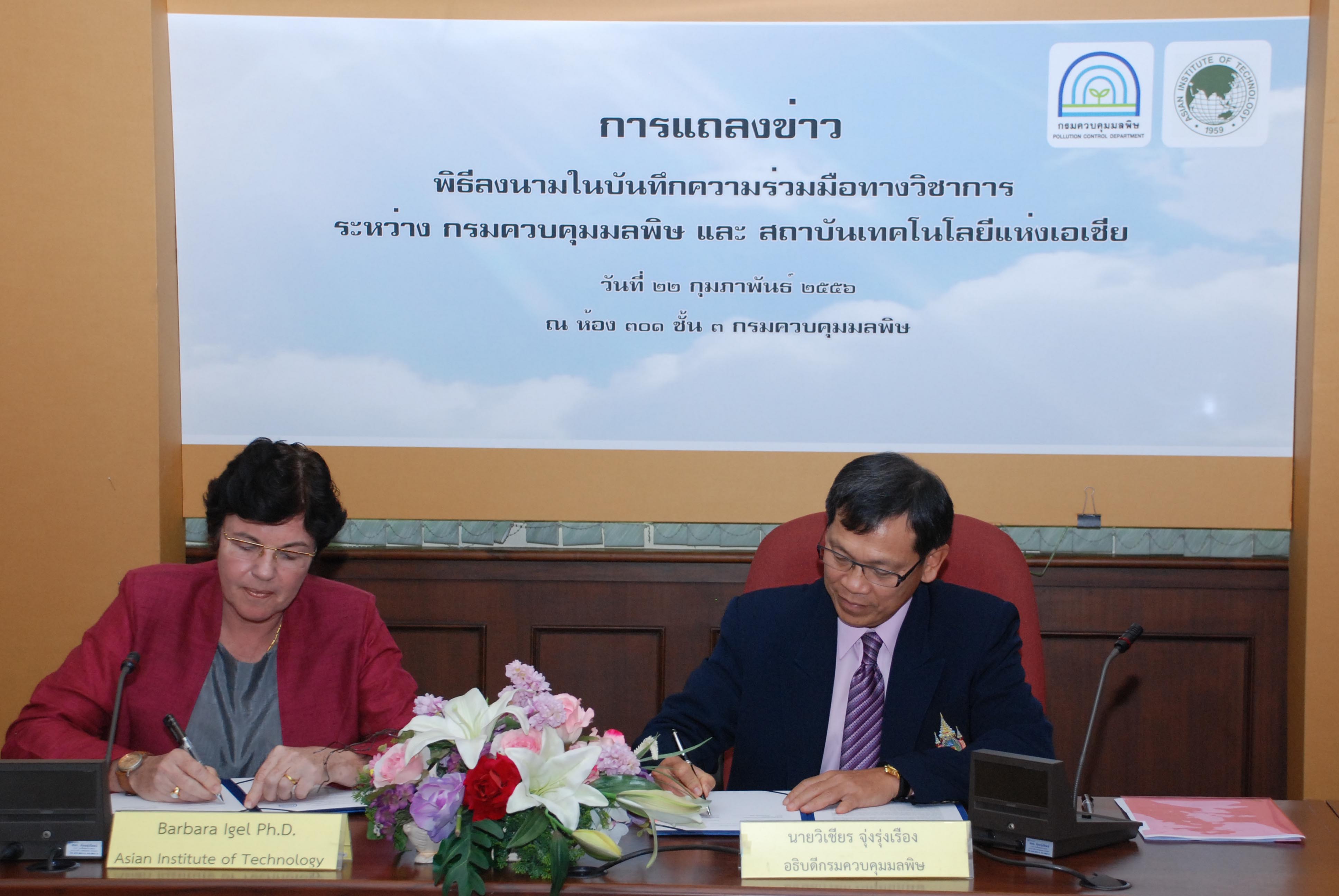The agreement signed on 22 February 2013 by Mr. Wichien Jungrungruang,
Director General, PCD, and Dr. Barbara Igel, Dean, AIT School of
Management, on behalf of Acting AIT President Prof. Worsak
Kanok-Nukulchai, is for cooperation through a graduate continuing
education and capacity building program for government officials.
At the signing ceremony in Bangkok, Director General Mr. Wichien said
the main activities under this agreement consist of development of a
master’s degree curriculum in urban and environmental management that
has been tailor-designed for working civil servants.
The WB-EM Program will be run by AIT Extension. The AIT School of
Environment, Resources and Development will ensure its academic quality
and requirements, AIT Extension Executive Director Dr. Jonathan Shaw
explained.
It aims to contribute directly to problem-solving tasks and capacity
building of particular local government units by requiring students to
complete an action research on a major practical problem pre-defined by
the employee-student’s sponsoring government unit.
“The PCD students will be required to do a project paper in line with
his or her responsibility,” Mr. Wichien said.
The specialized curriculum and flexible structure will be advantageous
to busy PCD officers juggling work responsibilities. The WB-EM Program
emphasizes experiential learning and immediate applicability of
learning to employees’ professional circumstances and concerns, said
Dr. Edsel E. Sajor, Senior Program Secretary, AIT Extension.
The one-year program will start in June, with students expected from
the Philippines, Myanmar, Vietnam and Thailand. Students will be
required to complete two 6-week periods of in-classroom work on campus
on theory, fundamental subjects and specially-designed electives. Field
and office-based project paper work will take place from August to
December and from mid-February to April.
One-on-one mentoring periods with students are also included during
the year. Some scholarships made available for suitable candidates. The
first WB-EM Program class batch is expected to graduate in May
2014.
Overall, the work-based, international nature of the program is
expected to contribute to knowledge sharing amongst regional
governments, which is highly advantageous leading up to AEC 2015, Dr.
Sajor said.


